The below acts as an inspiration to us all. Eire will miss this great freedom fighter and patriot.
A life dedicated to the IRA and a broken heart
(by Suzanne Breen, Sunday Tribune)
From his flat high in Divis Tower on the Falls Road, Brendan Hughes looked down on the city he bombed. He pointed to a car hire firm, owned by a wealthy unionist businessman in the 1970s, and one of the IRA's prime commercial targets.
"We bombed that place so many times, yet he kept re-opening it. I respected him for not giving up," said Hughes. In the end, Hughes' heart was broken by the belief that the leadership of the movement he served for three decades had given up the goals he still cherished.
Visiting the former Belfast Brigade OC in the tiny, threadbare flat where he spent his last years was always an emotional experience. The war, and the peace, had left him with indelible physical and mental scars. A slight figure in a Che Guevara t-shirt, he chain-smoked and drank to ease the pain of what he called "the sell-out", but it never really worked.
As I'd leave his flat, he'd hand me pages of thoughts he'd scribbled down on Sinn Féin, poverty in republican areas, the Middle East conflict, and Catholic Church child abuse scandals. An atheist, he wanted the Church – not the IRA – disbanded.
Nicknamed 'the Dark', Hughes had been a ruthlessly committed paramilitary. His gun battles with the British entered republican folklore. Yet he was a complex man, displaying a compassion often missing in republican ranks.
Once, he'd a chance to kill a young British soldier in Leeson Street. The terrified soldier cried for his mother: "I stood over him with a .45 aimed at his head. I could have pulled the trigger and sent him to eternity. But morally and emotionally, I wasn't able to end his life. He was a mere child, so frightened."
Later, Hughes was haunted by the faces of IRA colleagues whom, he believed, had died for nothing. He'd spend days crying in his flat. A photo hung on the wall of Hughes in Long Kesh, with his best friend, Gerry Adams, arms around each other. "I loved him. I'd have taken a bullet for Gerry. I probably should have put one in him," Hughes said.
He accused the leadership of abandoning republicanism for "personal power" and said the GFA (Good Friday Agreement) stood for 'got f**k all'. He'd developed left-wing politics as a teenage merchant seaman. Entering African ports, he was appalled by the poverty he saw. He gave boxes of the ship's supplies to locals.
He joined the IRA in 1969 and was jailed in 1973. He soon escaped, rented a house in the affluent Malone Road, dyed his hair, and donned a suit and tie. He became businessman Arthur McAllister, travelling around Belfast in disguise, coordinating the IRA campaign.
Eventually, his cover was blown. He spent 13 years in jail and 53 days on hunger-strike. On release, he rejoined the IRA. He worked for internal security but became suspicious of the 'department' which, it has since been revealed, included high-placed British agents.
His first clash with the leadership came when he complained of the £20 a day wages paid to ex-prisoners by a large west Belfast building contractor. An Official IRA member, shocked to see 'the Dark' carrying bricks and sweating in a ditch for a pittance, was told by the boss: "He's cheaper than a digger."
When Hughes tried to organise a strike, he was offered £25 a day on condition he not tell the others. "I told (the boss) to stick it up his arse and I never went back. I wrote an article about if for Republican News but it was censored."
His wife had become involved with another man when he was in jail. Other prisoners urged him to give her a hard time. Hughes apologised to her for "always having put the movement first", and told her to be happy.
While others of his rank secured holiday homes and businesses after the IRA ceasefire, Hughes survived on disability allowance. Just last month, he was left without heating until another ex-prisoner lent him an electric fire.
He craved solitude, visiting the pub in the quiet of early afternoon, and coming home to watch Channel Four's 'Deal or No Deal'. Prison had left him with arthritis. He was prone to chest infections and started to go blind. He didn't eat well and neglected to take his medication. Political disillusionment had weakened his will to live.
.In 1995, he was approached by army council member, Brian Keenan, who expressed discontentment with Adams and McGuinness and asked for help in devising a new military strategy. Hughes was interested but thought it a false approach to have him reveal his hand.
While he remained against the peace process, he came to believe all opposition should be peaceful and 'armed struggle' was pointless. Despite his militancy, Hughes' outlook wasn't narrow. He was chuffed when, years after jail, a Protestant prison officer tracked him to Divis. They went for a drink.
Two years ago, he visited Cuba to see the Sierra Maestra where Che had fought. He loved the locals and was angry the authorities barred them from hotels reserved for Westerners. In solidarity, he refused to enter.
He died, aged 59, after total organ failure. His ashes will be scattered on the Cooley Mountains, his parents' grave, and the Falls Road IRA garden of remembrance. The last of the writings he gave me conveyed his inner torment: "I go to bed in pain, I wake in the middle of the night in pain, I get up in pain. What the f**k was it all about?"
This article appeared in the February 24, 2008 edition of the Sunday Tribune.
Ireland will always remember with pride the name of Brendan Hughes.
Sunday, 11 May 2008
Subscribe to:
Post Comments (Atom)
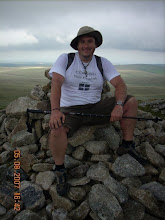


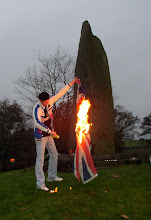












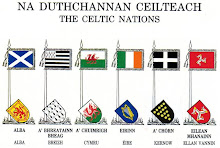.jpg)






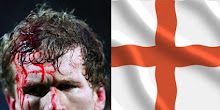









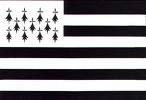






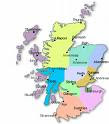














No comments:
Post a Comment